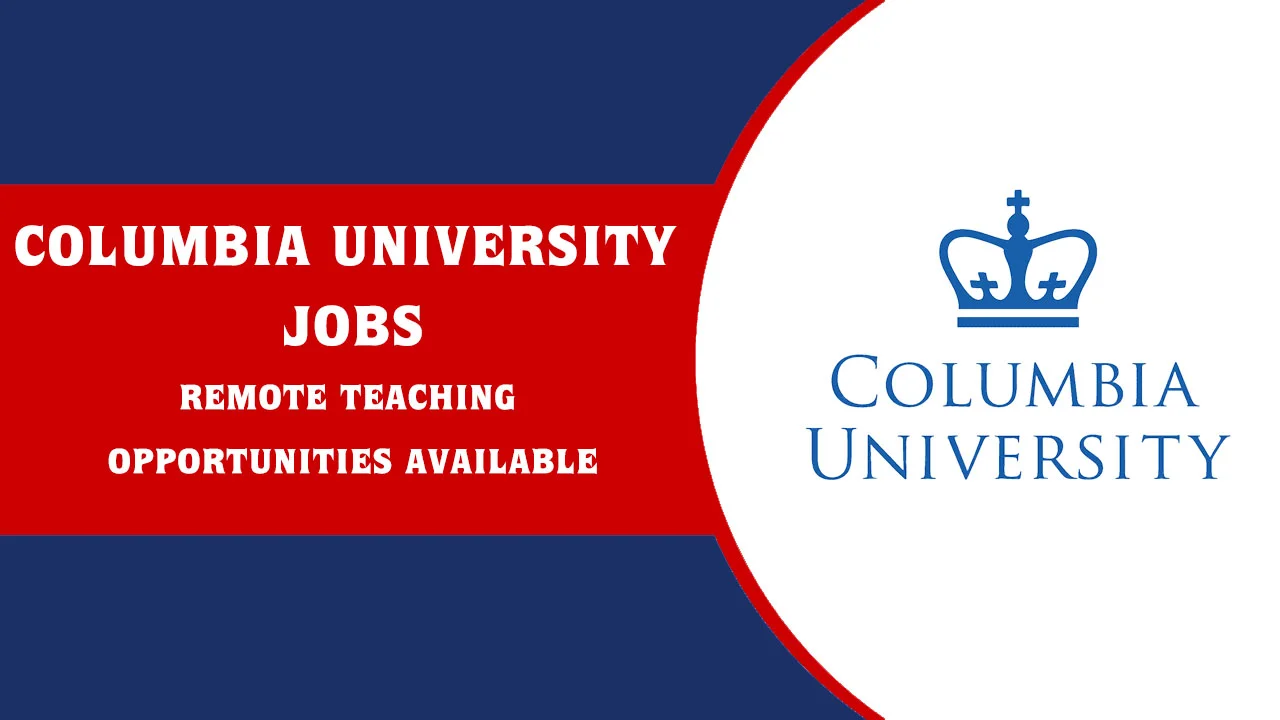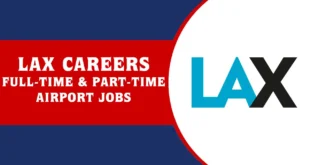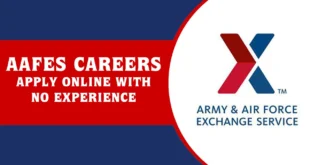If you’ve ever imagined being part of an institution that’s developing the next generation of leaders through world-class research, education, and community impact, you might want to take a serious look at Columbia University Jobs. For those who value honor, stability, and purpose in their professional lives, working at a highly respected academic institution offers a fulfilling pathway. Columbia is one of the oldest and most renowned universities in the United States. It has always been ranked among the world’s top educational institutions.
In recent years, there has been a growing demand for Columbia University careers in academics and administration. In addition, their remote jobs are incredibly popular throughout the country. This shift toward hybrid and work-from-home opportunities has made the institution even more appealing to candidates seeking work-life balance without compromising professional goals. At Columbia, you can choose from on-campus positions to flexible research and support positions in multiple departments and specialties. Therefore, don’t miss out! Submit your application now!
For More Latest Education & teaching Jobs: Click Here
| Company Name: | Columbia University |
| Job Locations: | United States |
| Last Updated on: | August 15th, 2025 |
Columbia University Jobs in United States | Latest Vacancies

Overview of Columbia University
Columbia University was founded in 1754 and it is the oldest institution of higher learning in New York and the fifth oldest in the United States. As one of the eight Ivy League schools, it is known for its challenging academic environment and influential alumni network. Their alumni group consists of leaders in politics, science, literature, and business. The university is located primarily in the Morningside Heights neighborhood of Manhattan. It has additional campuses such as Columbia University Irving Medical Center and the Lamont-Doherty Earth Observatory, which focus on health sciences and earth sciences respectively.
The university is home to over 17,000 faculty and staff members who support its mission of teaching, research, and public service. It operates more than 20 schools and colleges, which include Columbia College, the Graduate School of Arts and Sciences, the School of International and Public Affairs, and the Mailman School of Public Health. This university manages hundreds of research centers and institutes that contribute to advances in everything from biomedical engineering to urban planning. These centers are not only important for expanding knowledge but also serve as major employers for academic professionals, administrative staff, and student assistants.
Diversity, Equity & Inclusion at Columbia
Within this institution, diversity, equity, and inclusion aren’t just words. They are incorporated into the very framework of its hiring, community engagement, and academic mission. The university believes that excellence can only be achieved in an environment where people from every walk of life feel seen, heard, and valued. This belief is reflected in the way policies are built, how hiring practices are executed, and how team cultures evolve across departments.
To create a more welcoming and equitable workplace, the university has implemented a number of programs and principles. These initiatives support a wide range of professionals from underrepresented backgrounds. Whether someone is applying as a research assistant, administrator, or IT specialist, they will find that the hiring process, team culture, and leadership values reflect a strong commitment to equity and respect. Key DEI practices include:
- Dedicated DEI offices in both the academic and HR divisions to lead cultural and policy initiatives
- Ongoing training on unconscious bias, equity in leadership, and equitable hiring
- Partnerships with minority-serving institutions to expand applicant pipelines
- Honesty in reporting faculty and staff demographics
- Community engagement through public forums, inclusion task forces, and campus events.
Employee Resource Groups (ERGs)
One of the most significant strengths of the university’s workplace policies is its network of Employee Resource Groups. These voluntary, employee-led groups provide safe workspaces where staff and faculty with shared identities or interests can connect, support each other, and influence change within their units. ERGs are more than social circles. They are catalysts for career development, leadership visibility, and cultural education across departments.
Current ERGs at the university serve communities including but not limited to women, LGBTQ+ employees, Black and African American staff, Asian-American and Pacific Islander professionals, and Latinx employees. Each group is encouraged to collaborate directly with HR and university leadership to advocate for policy changes and equitable practices that improve the employee experience.
Commitments to Racial & Gender Equity
Equity is a primary objective of the university’s HR strategy. That means ensuring that individuals of all races and genders have equal access to hiring, promotion, and leadership development opportunities. The institution regularly reviews its pay structures, evaluates gender representation in leadership roles, and measures faculty and staff diversity across departments.
Through targeted initiatives like mentorship programs for women in STEM, leadership boot camps for employees of color, and grants to support inclusive research, the university puts its commitments into real action. Additionally, gender-neutral parental leave, equitable compensation reviews, and grievance procedures designed to address discrimination concerns further support these commitments.
Popular Job Opportunities at Columbia
The university’s job portal reflects the rich variety of its operations. From internationally renowned researchers and instructors to tech specialists and marketing professionals, there’s a wide selection of positions open to candidates across different experience levels. Whether an individual is just stepping into the workforce or hoping to bring years of leadership experience to an established institution, they’re likely to find a category that fits their goals. Their most popular job categories are listed below.
Teaching & Lecturing
Academic excellence begins in the classroom, and the institution actively recruits lecturers, adjunct faculty, and full-time professors across its multiple schools. These roles may involve teaching undergraduates, leading graduate seminars, mentoring doctoral students, and participating in curriculum design. Candidates often bring years of expertise in their discipline and are encouraged to combine traditional teaching with research and public engagement.
Research (Assistant, Associate, Lab Roles)
As a global hub for scientific and social research, the university offers extensive opportunities for researchers. Positions range from entry-level research assistants supporting grant-funded projects, to mid-level lab managers, to senior research scientists. Research positions are available in public health, engineering, psychology, climate science, and more. Many of these jobs are ideal for graduate students or early-career professionals aiming to contribute to large, multidisciplinary studies.
IT & Tech Positions
Technology is the basis of the university’s operations. From maintaining secure databases to developing learning platforms, the IT team is responsible for ensuring efficient digital experiences for students and staff. Positions include system administrators, software developers, cybersecurity analysts, and instructional technology specialists. These positions support everything from campus-wide software upgrades to research infrastructure management.
HR, Finance, Legal, and Admin Staff
Behind every successful institution is an effective administrative framework. Departments like Human Resources, Finance, and Legal hire specialists in payroll, employee relations, contract review, budgeting, and compliance. These positions offer stability and long-term career pathways for professionals skilled at operations and strategy. Administrative assistants and office managers are also important in supporting faculty, coordinating logistics, and managing schedules.
Internships & Student Jobs
For students currently enrolled in classes, there are countless part-time and seasonal opportunities across departments. Internships are offered in research, public affairs, event planning, IT, and even legal clinics. These positions allow students to acquire practical experience while contributing to university projects. Some internships are eligible for federal work-study, while others are open to all students regardless of financial aid status.
Columbia University Remote Jobs
Remote work has become a significant part of the university’s work culture, especially after the shift brought about by the global pandemic. The institution has adapted to offer hybrid and fully remote roles in various departments, notably IT, marketing, academic support, and administration. These positions offer flexibility while still providing the same level of engagement and career growth expected of on-site roles.
For many professionals, working remotely from home while being connected to a world-renowned university is a major advantage. These roles often come with full benefits, access to training programs, and opportunities to contribute to high-impact projects. Highlights of the remote working model include:
- Options to apply for fully remote, hybrid, or flexible schedule positions.
- Most common in departments like IT, Digital Learning, Admissions, and Communications.
- Eligibility is based on location, time zone, role responsibilities, and team collaboration needs.
- Training sessions and onboarding modules designed specifically for remote hires.
- University-provided access to Zoom, Slack, Microsoft Teams, and VPN for secure collaboration.
Salary & Benefits
Columbia university jobs maintain market-competitive salary structures that represent the value of its academic, administrative, and technical staff. Their pay scales are based on market standards for higher education institutions in the United States. Adjustments are made according to experience, responsibilities, and department funding. Faculty positions usually earn higher salaries, with full professors receiving six-figure annual compensation packages, especially in departments like law, medicine, and business. Research assistants and academic support staff, often hired part-time or temporarily, are paid on hourly or stipend-based models depending on grant or project funding.
Salaries for administrative and operational staff depend on their role and department. Entry-level administrative assistants can expect starting salaries in the $45,000 to $55,000 range annually, while mid-level managers in finance, IT, or HR departments often earn between $70,000 and $95,000. Research associates and technical specialists usually fall between $60,000 and $80,000 per year. Moreover, part-time positions, especially those related to student support or project-based roles, are compensated hourly, generally ranging from $18 to $30 per hour.
Pay scales are regularly reviewed to ensure equity across gender and race, and most positions include annual performance evaluations that contribute to salary growth. Employees here also benefit from a comprehensive benefits package. This includes comprehensive healthcare plans, dental and vision coverage, retirement plans with employer matching, tuition assistance, generous paid time off, parental leave, and commuter benefits. For those pursuing further education, the university also offers tuition exemption programs for employees and their dependents. This makes it a desirable employer for professionals seeking long-term career growth.
Eligibility Criteria
To be considered for Columbia university jobs, applicants must meet the basic eligibility requirements. The expectations are different across academic, technical, and administrative departments due to the wide variety of positions available. However, there are some common criteria that every applicant should be prepared to meet, whether they’re aiming for a full-time position or a part-time research assistant role. The following criteria are key to eligibility:
- A minimum of a bachelor’s degree is required for most academic and administrative roles, with advanced degrees often required for faculty and research positions.
- Relevant professional experience ranges from 1 to 10 years depending on the seniority and specialization of the job.
- Legal authorization to work in the United States, including U.S. citizens, permanent residents, and eligible international students under OPT or CPT programs.
- For remote positions, candidates must reside in states approved by the university for remote employment and meet all local compliance requirements.
- Proficiency in English, both written and verbal, is required for nearly all roles, with additional language skills considered a plus in departments with an international focus.
- Familiarity with digital tools such as Microsoft Office, Zoom, or Salesforce for admin and remote roles, and lab equipment or programming languages for technical positions.
- Background checks may be required for positions involving confidential data, finance, or working with minors
- Strong communication and collaboration skills, especially for roles involving public-facing duties or team-based work environments
- Department-specific qualifications, such as teaching credentials, medical licenses, or research certifications, depending on the nature of the job.
Application Process for Columbia University Jobs
In order to apply for Columbia University jobs, you must pay attention to detail. Candidates can begin by clicking on the “Apply Here” button below. Here, they’ll find an organized portal listing all currently open positions. After selecting a job that matches their skills and experience, applicants are asked to create a secure online profile. From there, they can upload a resume, add references, and submit a cover letter specific to the role. It’s highly recommended that you personalize each application to reflect how your background matches the specific department’s needs.
After submitting an application, candidates usually receive a confirmation email. The timeline for responses is different, but most departments aim to follow up within three to four weeks. Shortlisted applicants may be invited to phone screenings, virtual interviews, or personal meetings. During this process, having a customized resume and well-written cover letter can significantly increase the chances of moving forward.
Tips to Get Hired Faster
With the right approach, candidates can increase their chances of landing a job at Columbia University. Subscribe to job alerts through the university’s portal. It ensures that all new openings land directly in your inbox. Building connections through campus events, LinkedIn, or academic conferences can lead to internal referrals, which often carry more weight when hiring. Additionally, tapping into alumni networks also offers a way to learn more about departmental expectations. When applying, customize your resume to emphasize your contributions and use terms that reflect the job description. For those applying to research or remote jobs, it helps showcase independent work skills and relevant tech tools.
Summary
Among the best in the country, Columbia University jobs continue to attract the best professionals. Whether you’re interested in research, technology, communication, or student support, there are roles that fit nearly every career path. The university’s portal is regularly updated with new openings, which makes it a valuable resource for job seekers. Now is the time to start exploring these opportunities, bookmark the career site, and prepare your application materials for a chance to work in one of the most distinguished and impactful environments in higher education.
 Find Newest Jobs in USA
Find Newest Jobs in USA



